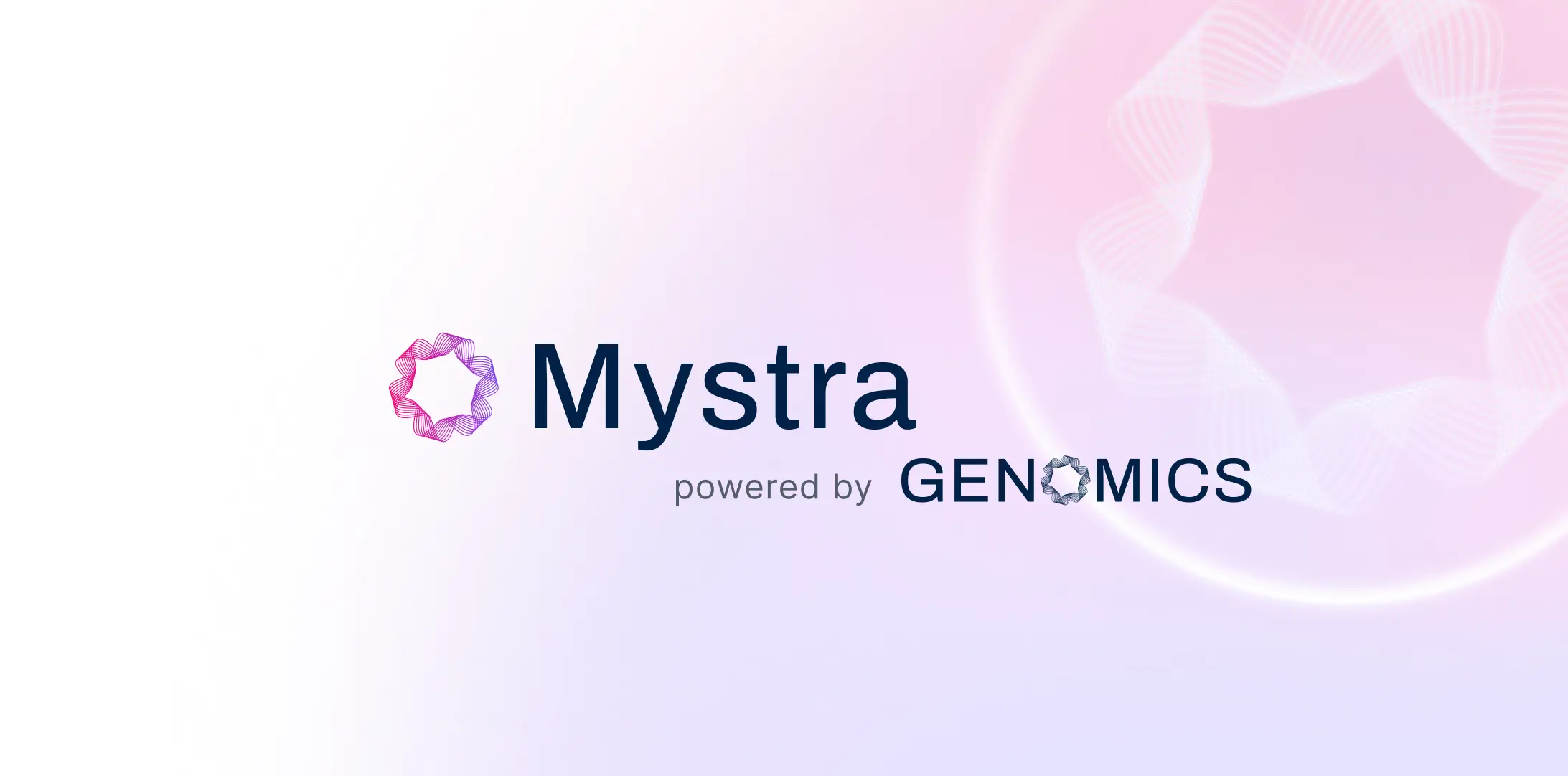Does Genomics specialise in particular diseases?
We have developed risk scores for nearly 30 major diseases, including breast cancer, prostate cancer, colorectal cancer, cardiovascular disease, and type 2 diabetes. We continually update our list of diseases. In Life Sciences, we work with pharmaceutical partners on drug development for rare and serious diseases with significant and unmet need.
How does risk prediction powered by genomics work?
Genomics' tests are based on Polygenic Risk Scores (PRS): a numerical summary of an individual’s genetic predisposition to a disease. Unlike conventional risk factors in health, genetic risk can highlight individuals who are at high risk of developing a disease decades before the onset of symptoms. To read more about how the science, read our White Paper or to read how it is used in practice, see our case study.
Does genomically-powered risk prediction work for everyone, regardless of their background?
Genomically-powered risk prediction works for everyone, but Polygenic Risk Scores are more powerful in some groups than others, because the way they are developed relies on databases with predominantly European ancestries. We are committed to reducing health inequalities both in data and in health provision. We have developed powerful methodologies to ensure that biases in Polygenic Risk Scores are minimised as much as possible, so that they remain relevant for risk prediction in real-world populations with varied and complex ethnic ancestries.
Where does Genomics' genetic data come from?
We handle genetic data in two ways.
Firstly, to develop and test our algorithms for risk prediction and in drug discovery, we use databases containing anonymous information about millions of individuals. Most of this type of data comes from tens of thousands of genome-wide association studies (GWAS) carried out by research labs within academic institutions. A GWAS investigates genetic variation and associations with disease, or how genes or proteins are expressed in different tissues. We also use data from large managed-access repositories such as the UK Biobank and others. This data is often summary-level data (that is, data about groups of individuals), and is always de-identified.
Secondly, when we do our risk prediction tests for individuals, we collect the genetic information from those individuals. To learn more about how this happens, see here. We will always make it clear what we are using your data for, and we will always obtain your consent to use your genetic information in different ways.
Firstly, to develop and test our algorithms for risk prediction and in drug discovery, we use databases containing anonymous information about millions of individuals. Most of this type of data comes from tens of thousands of genome-wide association studies (GWAS) carried out by research labs within academic institutions. A GWAS investigates genetic variation and associations with disease, or how genes or proteins are expressed in different tissues. We also use data from large managed-access repositories such as the UK Biobank and others. This data is often summary-level data (that is, data about groups of individuals), and is always de-identified.
Secondly, when we do our risk prediction tests for individuals, we collect the genetic information from those individuals. To learn more about how this happens, see here. We will always make it clear what we are using your data for, and we will always obtain your consent to use your genetic information in different ways.
Does Genomics sell or pass the data it uses to other companies?
We do not sell the genetic data we have to other companies, or to anyone.
Although we do our analysis in-house, we outsource our laboratory activities to other companies, who are trusted third party providers. Only people authorised to use your DNA, for the purpose for which you have given consent, will be able to handle it.
Further detail on how we handle genetic data can be found here.
Although we do our analysis in-house, we outsource our laboratory activities to other companies, who are trusted third party providers. Only people authorised to use your DNA, for the purpose for which you have given consent, will be able to handle it.
Further detail on how we handle genetic data can be found here.
How does Genomics protect its data?
Protecting the data we work with on behalf of the individuals who have contributed it is of paramount importance to us. We have:
- state-of-the-art data security systems
- a collective ethos and commitment for responsible data use
- internal ‘Data Standards’ that our employees all have to follow
- independent certification for our scientific data processing infrastructure and systems, meeting ISO 27001 information security standards since 2016
- best-practice requirements and adherence to relevant laws and regulations governing the use of genetic data by Genomics – in-house and in conjunction with our partners
- ‘privacy by design’ principles governing our end-to-end software and application design processes
Please see here for detailed explanations of our data policies.









